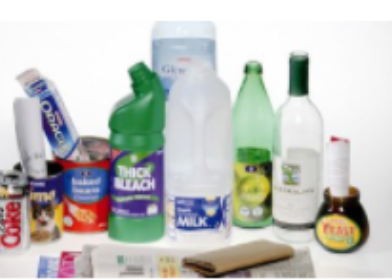At a recent Causeway Coast and Glens Borough Council public information event held in Limavady, a query was raised about where all the items collected in our blue bins actually end up.
Materials commonly called waste can be processed into new products which is cost effective and environmentally friendly. From this point of view, the materials collected for recycling can be considered as resources with potential to reduce our negative impact on climate and ecology
As part of the countdown to European Week For Waste Reduction, Causeway Coast and Glens Borough Council will put the spotlight on recyclable material to show residents how important it is to make full use of our recycling services.
Did you know that paper was the most recycled item across the Causeway Coast and Glens Borough Council area last year?
Over 4500 tonnes was collected at our kerbsides, accounting for 42% of all blue bin material.
Due to its wide range of uses, there are a number of grades of paper. Separation, grading and bulking takes place at a Materials Recovery Facility (MRF) in Newry, County Down. Baled paper is transported to a pulp mill where it is recycled into a new usable product. In our case, recycling takes place at a number of sites across Europe and Asia. Large rolls of paper are then distributed to customers for cutting and printing to the desired shape and size, from postage stamps to billboard advertising sheets.
Paper is originally produced from trees. A significant amount of energy is used to harvest, transport and pulp trees into the desired grade and quality of paper. In order to sustain this demand for forest, large areas of land are set aside and planted with young trees. While this helps to sustain a supply of trees, it also impacts on wild areas and agricultural land. Even with a local supply here in Northern Ireland, we still rely on paper produced from trees grown in other parts of the world, mostly Scandinavia. This means we need to consider how our lifestyle demands here in the Causeway Coast and Glens impact on lives, resources and the ecology of other parts of our planet.
We also need to consider the issue of climate change. Trees play an important role in regulating the amount of carbon in our atmosphere by absorbing this gas and releasing oxygen. Carbon contributes to global warming leading to unpredictable weather patterns, stressed agricultural production and international disputes over access to water. It is in all our interests to protect these valuable assets. Recycling paper is one way we can sustain links and connected natural webs within our ecological systems.
Our recycling performance within the Causeway Coast and Glens has improved greatly over the last number of years as we endeavour to provide efficient recycling opportunities which residents can avail of. Working together we can all ensure a safe and productive environment both locally and across the world. This is important today and for future generations.
To find out more about what happens to the paper we recycle watch the short video below.
For further information about recycling go to www.causewaycoastandglens.gov.uk/live/bins-and-recycling or ring 028 7776 0305.
